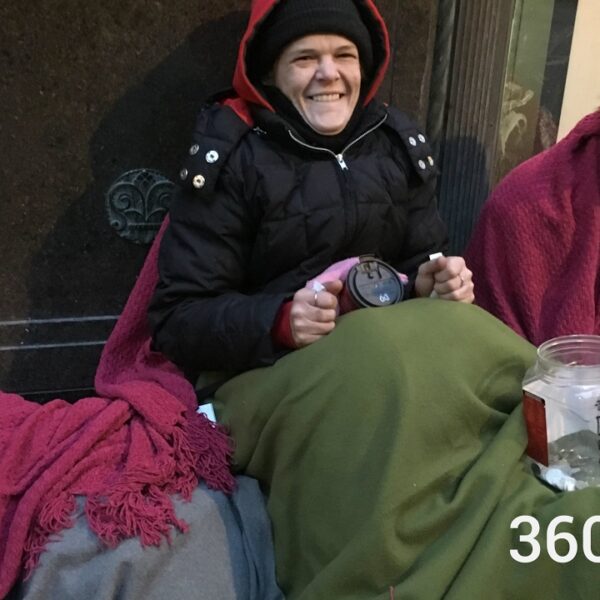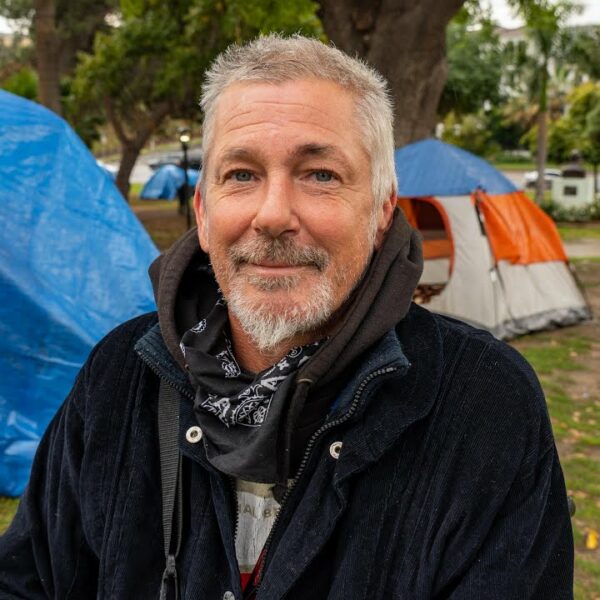Republican-Backed Legislation Aims to Increase Homeless Shelter Funding in Exchange for Policing Camping Bans
Republicans in Kansas are sponsoring legislation that could increase funding for homeless shelters by up to $40 million if the shelters agree to help enforce public camping bans in return.
The bill, House Bill 2723, was introduced by Republican Rep. Leah Howell, who told the Kansas Reflector that she consulted the conservative think tank Cicero Institute while crafting the legislation. Cicero Institute is a Texas-based nonprofit that has helped push legislation to criminalize sleeping outside in states from Arizona to Georgia.
Homelessness in Kansas Increases Amidst Tensions over Unsheltered Population
HB 2723 was introduced at a time when homelessness in The Sunflower State has increased by roughly 10%, up to nearly 2,500 people. About one-quarter of people experiencing homelessness in Kansas are unsheltered, which has caused some tension in local communities.
Some homeless service executives and housing advocacy groups support the bill because it could increase the number of shelter spaces available for the state’s most vulnerable residents.
“A continuum of housing resources that includes emergency shelters, transitional housing, and permanent housing with supports is key to moving individuals beyond shelter beds into self-sufficiency,” Amy Campbell, a Kansas Mental Health Coalition lobbyist, told the Kansas House Committee on Welfare Reform on March 5.
Renita Butler, treasurer for the HSH Homeless Ministry in Independence, Kansas, added that the bill would allow small organizations like hers to “meet cooperating budget needs and expand our services in the future.”
Critics Highlight Potential Issues with Bill, Citing Legal, Ethical, and Humanitarian Concerns
Other advocates were not as convinced. Author Max McCoy wrote in an op-ed that HB 2723 is another attempt by the Kansas legislature to “return to police the kind of power they haven’t had in 50 years.” McCoy was referring to a Supreme Court decision that found vagrancy laws were too vague and, therefore, violated the 14th Amendment of the Constitution.
“The prohibition on unauthorized camping on state or municipal land sounds reasonable, but to call how the unsheltered live in our cities’ camping’ is to sanitize the daily fight for survival of thousands of Kansans,” McCoy wrote.
Other States Embrace the Criminalization of Homelessness
The bill was introduced at a time when Republican-controlled legislatures across the country are pushing bills to criminalize homelessness as rates of homelessness continue to increase.
Florida became the latest state to pass a Cicero-style camping ban bill on March 15 when the state Senate passed House Bill 1365. The bill prohibits people experiencing homelessness from sleeping on public grounds and threatens to withhold funding from cities that do not meaningfully decrease their homeless populations.
“In Florida we will continue to enact policies that promote accountability and community safety, unlike in California where they are promoting dangerous policies that harm their communities and economy,” Florida Gov. Ron DeSantis said after the bill passed.
Republicans in Louisville, Kentucky, have also introduced a bill called the Safer Kentucky Act that would allow private property owners to use lethal force to remove people experiencing homelessness from their property.
Kentucky housing advocates spoke out against the bill, saying it is a dangerous way to address homelessness.
“It fails to address the root causes of violence and poverty, instead relying on disproven approaches, including the criminalization of homelessness and limiting local governments’ abilities to spend federal dollars on evidence-based housing solutions,” The Louisville Coalition for the Homeless said in a press release.
Arizona lawmakers have also proposed giving private citizens tax breaks if they spend money to move people experiencing homelessness off their property. The resolution was submitted by the Goldwater Institute, a libertarian think tank in Phoenix.
Jane Ahern, a lobbyist for the League of Arizona Cities and Towns, told the Arizona Mirror that if the bill became law, it would put cities in a legally untenable situation.
“Instead of addressing the shortage of shelter capacity, this bill simply threatens to drain much-needed resources and expose cities to further litigation,” she said.
How You Can Help
Handcuffs will never solve homelessness. The pandemic proved that we need to rethink housing in the United States. It also showed that many programs designed to address homelessness are rooted in law enforcement rather than social services.
Tell your representatives you support revamping how your city addresses homelessness. Handcuffs do not get anyone closer to stable housing. Instead, we must focus on compassionate solutions, the first step to ending homelessness.













